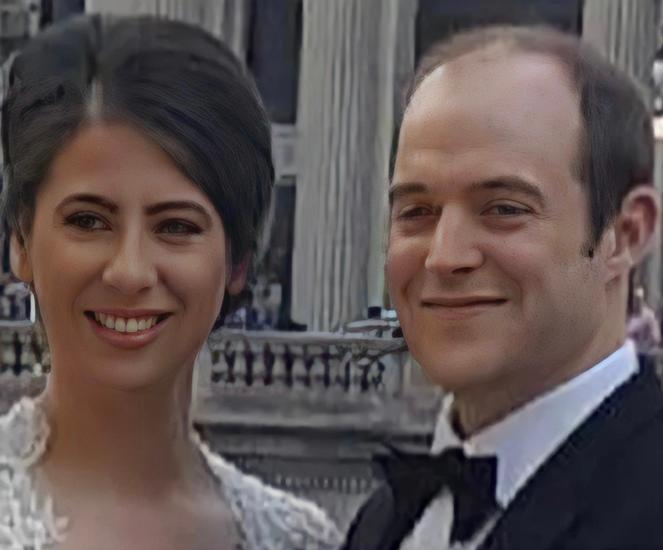Maeve Higgins, left, and Samantha Barry in conversation at the American Irish Historical Society. PHOTO BY KEVIN MCGANN
By Carmel McMahon
The official launch for Maeve Higgins’s new book, “Maeve in America: Essays by a Girl from Somewhere Else,” was held at the American Irish Historical Society in New York last week. The elegant rooms of the beaux arts mansion were booked to capacity with adults of all ages. Many had come to know Maeve through her stand-up comedy, her TV shows, her New York Times articles, her other books, and her brilliant podcasts.
The American Irish Historical Society was an ideal venue for many reasons. The society was founded in 1897, and today it houses the most extensive private collection of Irish and Irish American history and literature in the United States. It also houses numerous works of art and historical artifacts including, as Maeve pointed out, the death mask of Irish revolutionary hero, Wolf Tone. Sitting amid the lovingly maintained marble and wood, brocade and chandeliers, you feel the bond of the history between our two nations.
Sophie Colgan, marketing and events coordinator for the AIHS, introduced the evening: A conversation between Maeve and Samantha Barry, the accomplished editor-in-chief of Glamour magazine. Samantha and Maeve both hail from County Cork, so there was plenty to chat about. They discussed topics from Maeve’s book: "feelings," body image, their relationship to money, dating.
Samantha: “In Ireland, we don’t date. We just kind of smash into each other at Whelan’s.”
Maeve: “Then we get a mortgage and share a debt.”
The joke kept going, but I was laughing too hard to catch the rest of it.
They went on to discuss immigration, reactions to the Irish abortion referendum, and the distance between Irish and some Irish-American attitudes. We tip-toe about these topics in Irish-American institutions. Why? For fear of offending conservative donors? The repeal of the Eighth Amendment was the most important piece of Irish legislation in the past 20 years, but the Irish community in New York barely acknowledged it.
Having grown up in the oppressed, repressed Ireland of the 1970s and ‘80s, it was a joy to see these three recent Irish immigrants in the center of the room. They signaled a new air blowing in. In her 1997 masterpiece “I Love Dick,” New York writer Chris Kraus wrote, "I think the sheer fact of women talking, being paradoxical, inexplicable, flip, self-destructive, but above all public, is the most revolutionary thing in the world."
I had the feeling for the first time that a little of the progressive energy of our homeland had finally made it across the ocean. There has been a radical shift in consciousness in the Irish psyche, and whether we choose to acknowledge it or not, it is real, and it is as much a part of Irish history as everything else we celebrate here.
Carmel McMahon emigrated from Ireland in the 1990s. Her fiction and non-fiction have appeared in LeSofa: La Revue, nth Position, the Irish Independent and A Woman’s Thing among others. She contributes regularly to the Echo and the Irish Times. Her short story, "Homo Spiritualis," was short-listed for the Hennessy Literary Award, and it was collected in “The Hennessy Book of Irish Fiction 2005-2015” (New Island). She serves on the Committee for Irish Studies at Queens College and collects the oral histories of Irish immigrants for the Queens Irish Oral History Project.









